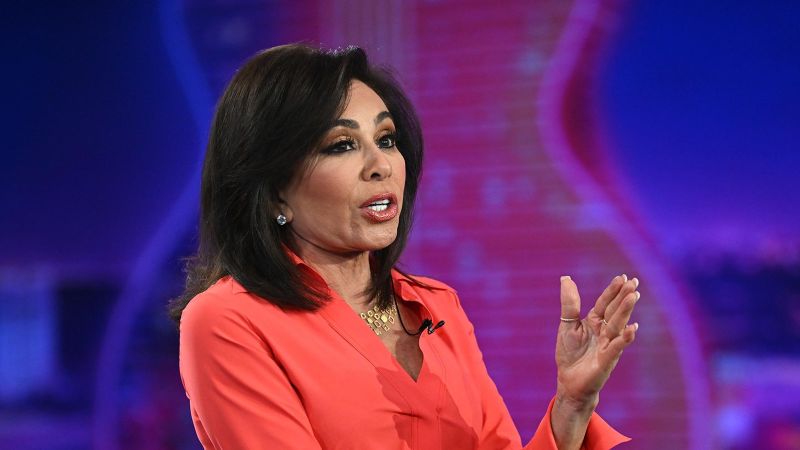On Thursday, President Donald Trump made a significant announcement regarding the appointment of Jeanine Pirro as the interim United States Attorney for Washington, D.C. This decision came after his initial nominee, Ed Martin, faced extensive opposition from Republican lawmakers, making it abundantly clear that Martin’s confirmation would not proceed smoothly. Trump’s pivot to Pirro highlights the complexities and challenges associated with judicial appointments, particularly in politically charged atmospheres.
In a message posted on Truth Social, Trump expressed his satisfaction with appointing Pirro, recognizing her as a groundbreaking figure as the first woman to hold several positions she has previously attained. He dubbed her a “powerful crusader for victims of crime,” which underscores the narrative he sought to support her appointment. Notably, Trump’s acknowledgment of Pirro’s accomplishments was accompanied by praise for her broadcasting career. He pointed out that she not only had a successful legal career but also hosted the popular Fox News program “Justice with Judge Jeanine,” which ran for a decade, and co-hosts “The Five,” a top-rated show on television.
Despite the announcement, it is worth noting that Pirro did not appear on “The Five” later that day, leading to speculation about her acceptance of the role. Media outlets like ABC News had previously reported Trump’s intentions regarding Pirro, indicating that his administration had been considering her candidacy for some time. Following the president’s announcement, CNN sought to gather responses from Pirro in light of her new interim role.
Earlier in the day, Trump remarked about withdrawing Martin’s nomination, citing the lack of support he received from various stakeholders as a determining factor. He mentioned, “He’s a terrific person, and he wasn’t getting the support from people that I thought,” illustrating the frustrations he faced navigating the nomination process. He emphasized that he remains committed to appointing someone capable and effective for the role.
Ed Martin’s nomination had been under significant scrutiny and faced mounting challenges as his confirmation countdown squeezed into a tight timeline leading up to May 20. As Trump withdrew Martin’s nomination, Senator Lindsey Graham of South Carolina commented, deeming the decision wise amidst the growing concerns regarding Martin’s qualifications. Graham tantalizingly hinted that Trump’s next selection would be momentous, suggesting the political implications of this appointment extend further than just a temporary placeholder.
Martin’s tenure had been clouded by controversies, which were revealed to be problematic during the confirmation process. Notably, he had issued a series of disclosures to Congress regarding his media engagement. However, inconsistencies were discovered; some past appearances were not initially reported, which raised critical doubts about his judgment. His past comments on Capitol rioters, coupled with some troubling remarks regarding the January 6 Capitol events, added layers to his already complex nomination saga. Furthermore, his references to the prosecutorial offices and demotions of senior lawyers who engaged in the January 6 investigations further fueled bipartisan concerns.
Highlighting the divisions within the Republican Party, Senator Thom Tillis, a key swing vote, ultimately signaled his opposition to Martin, pushing the nomination further into precarious territory. This instance illustrates the deep ideological rifts that exist, even among party members, especially concerning sensitive issues like the Capitol riots.
As the White House navigates this turbulent political landscape, it remains clear that the appointment of Jeanine Pirro as interim U.S. Attorney signals a broader strategy for Trump to reinvigorate his judicial appointments in a manner that aligns closely with his political agenda. The multilayered narratives interwoven throughout this appointment reflect not only the challenges faced by the Trump administration but also the ongoing political climate that will shape judicial nominations for years to come. This story continues to evolve as politics and news outlets closely monitor the implications of these appointments on the broader landscape of American governance.



